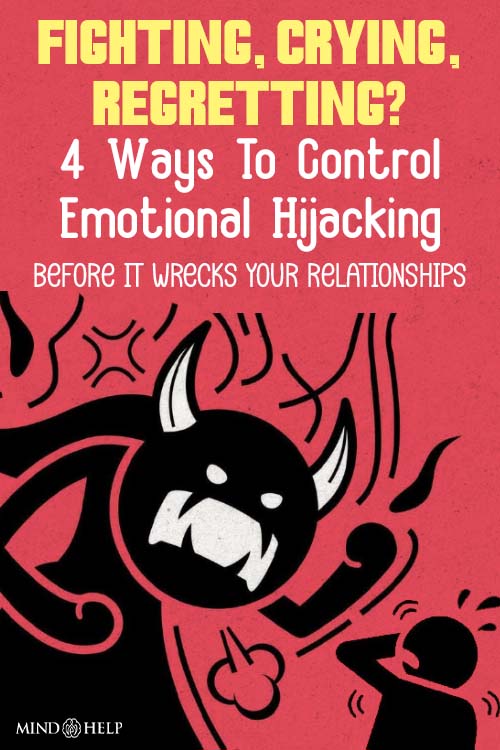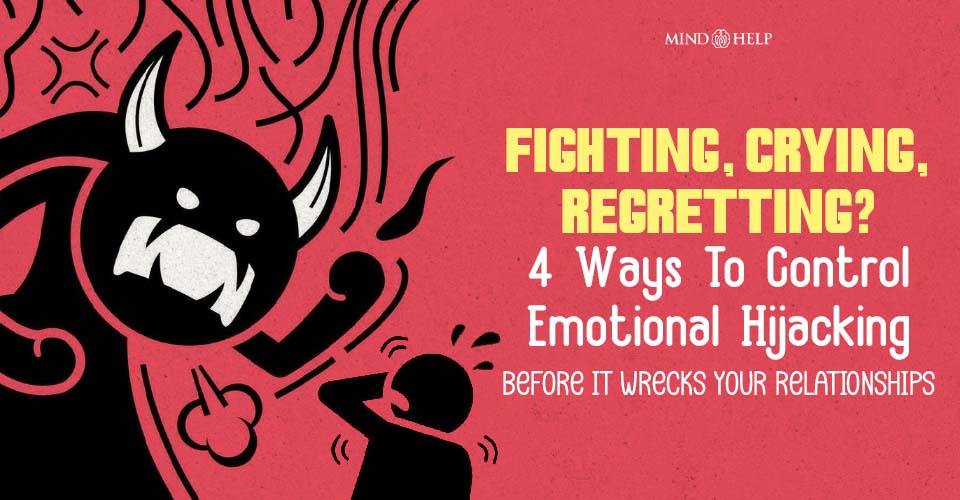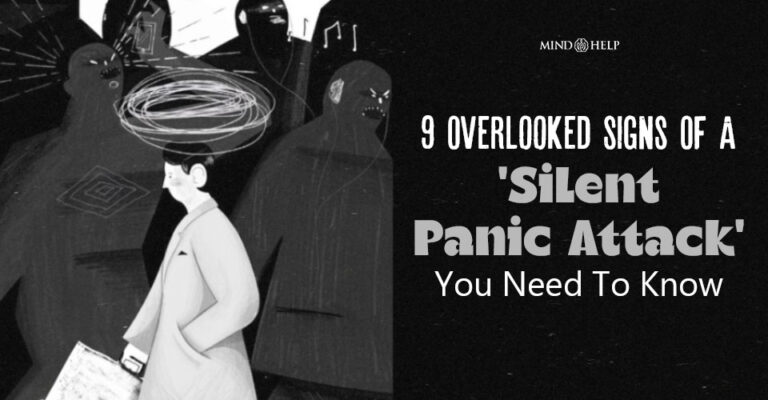Ever snapped at someone in the heat of the moment, only to regret right after? There’s actually a name for this feeling and psychologits call it: emotional hijacking
Emotional hijacking happens when the brain’s emotional center, the amygdala takes over before your thinking brain. It’s why you might lash out, freeze up, or burst into tears during a tense moment.
This response is more common than you think, especially in close relationships, where emotions run high and triggers hit deeper. But, emotional hijacking doesn’t have to control you.
So what exactly causes it, how does it show up in our interactions, and what can we do to handle it better?
Let’s break it down.
Read More Here: 7 Gentle Ways To Start Reparenting Your Inner Child
What Is Emotional Hijacking?
Emotional hijacking refers to a situation where your emotional brain takes over your thinking brain. This happens when a part of your brain called the amygdala takes over in moments of perceived threat or stress. It’s the same part of the brain responsible for our “fight or flight” response.

When triggered, it bypasses your logical thinking and sends your body into reaction mode. You might raise your voice, shut down, walk away, or say something you don’t mean.
But how is this a problem? Well, your body thinks it’s protecting you. But in most modern situations, especially social or emotional ones, you’ve got to keep your calm, whether it’s a tough conversation, a disagreement, or a frustrating moment.
When you react with a full-blown emotional response, it only makes things worse.
While this reaction may have helped our ancestors escape physical danger, today it often shows up in our conversations, conflicts, and relationships, reacting with raw emotion can do more harm than good.
So, if you’re dealing with a romantic partner, a friend, a sibling, or a colleague, emotional outbursts can quickly escalate into misunderstanding and mistrust.
Many arguments spiral not because of what’s said, but because of how it’s said in a moment of hijacked emotion.
Emotional Hijacking In Relationships
Relationships bring us close to people, but they also expose our vulnerabilities. That closeness can make emotional hijacking more likely. We feel hurt, misunderstood, or not heard, and suddenly, our raw emotions take over.
Here’s how it often plays out:
- You lash out in anger because you feel rejected.
- You shut down or walk away mid-argument instead of communicating.
- You assume the worst, misreading your partner’s tone or intention.
- You say something personal and cruel, even though you love the person.
What might start as a small disagreement about chores or weekend plans turns into a hurtful exchange that leaves both people feeling distant, defensive, or resentful.
How to Stop Emotional Hijacking In Relationships Or At Work
These reactions can create long-term damage, whether it’s your love-life, career or within family. But the good news is emotional hijacking in relationships can be managed.
You can train your brain to pause before reacting. It’s not about suppressing your emotions, it’s about responding instead of reacting. So, here’s how to stop emotional hijacking:
1. Notice What Happens In Your Body First
Emotional hijacking often starts with physical clues like racing heart, clenched fists, shallow breathing, teeth grinding. The earlier you catch it, the easier it is to interrupt it. Learn to notice these signs in yourself
2. Don’t Try To “Win” the Moment
When emotions are high, your goal shouldn’t be to win the argument or prove a point. It should be to stay in control of yourself. Remind yourself that reacting impulsively may feel good for a second, but fixing the damage later is never fun.
3. Pause Before You Respond
If you receive a text that makes you angry, or shout and scream, take a breath. Count to five or go for a short walk if you can. That pause creates space between your emotion and your action.
4. Speak Slower, Trust Me It Helps
When you slow down your speech, you slow down your thoughts. Even if you’re angry or upset, speaking more slowly gives your brain a moment to think before your mouth runs wild.
So try saying fewer words and breathe in between sentences, because silence is better than saying something you’ll regret.
Read More Here: Tired, Anxious, Distracted? ‘Candle Meditation’ Might Be The Grounding Ritual You Need!
Emotional hijacking isn’t a flaw but a natural human response. But understanding it gives you power to protect your relationships, express yourself clearly, and stay connected even in conflict.
It’s not about being perfect or emotionless. It’s about catching yourself in the moment and choosing how you want to show up. Slowing down may be the most emotionally intelligent move you can make!
Frequently Asked Questions (FAQs)
Why does emotional hijacking occur?
Emotional hijacking happens when the brain’s amygdala senses a threat, or when emotions overrides the logical part of the brain. It triggers a “fight or flight” response, causing a person to react impulsively before they’ve had time to think clearly.
How to stop emotional hijacking?
You can train your brain to pause before reacting. It’s not about suppressing your emotions, it’s about responding instead of reacting.








